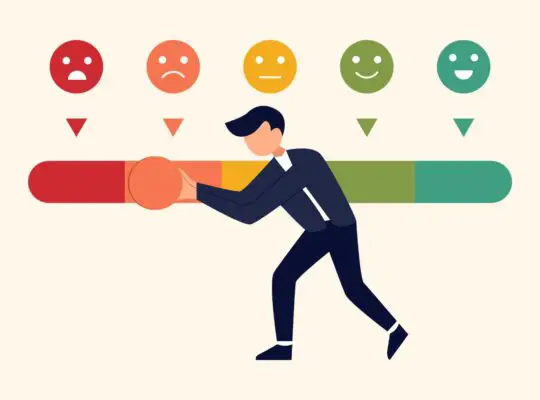It’s normal to feel like you’ve let yourself down sometimes. Perhaps you didn’t meet your own expectations, failed to follow through on a goal, or made a mistake that you regret. Understanding the ways in which you let yourself down is an important step in personal growth and building self-compassion.
In this article, we’ll explore the top 10 tips to help you better understand the ways in which you let yourself down, so you can learn from your experiences and move forward with greater self-awareness and self-acceptance.
Identify Your Personal Values
When you have a clear idea of your values, you have a benchmark for measuring your behavior and can identify when you are not living up to your own standards. For example, if one of your values is honesty, and you catch yourself telling a lie, you can recognize that you let yourself down in that moment.
By examining where and how you fall short, you can work to make changes that align with your values and prevent future self-disappointments.
Be An Objective Observer
Being an objective observer can help you understand the ways in which you let yourself down by allowing you to step outside of your own perspective and view your thoughts, feelings, and behaviors objectively. This means looking at yourself and your actions without judgment, and instead focusing on observing and understanding what happened and why.
By taking a more objective approach, you can gain insights into your patterns of behavior and identify areas where you may be letting yourself down. You can also develop a deeper understanding of your thought processes and how they influence your actions, helping you make more conscious choices in the future.
Acknowledge Your Emotions
Acknowledging your emotions is an essential step towards understanding the ways in which you let yourself down. Emotions serve as indicators of whether we are fulfilling our needs and expectations. When we experience negative emotions such as guilt, shame, or disappointment, it may be an indication that we have not lived up to our personal standards or violated our values.
Taking the time to recognize and name these emotions allows you to delve deeper into the reasons behind them and identify the specific areas where you may have let yourself down. It can also help you develop greater self-awareness and learn how to manage and regulate your emotions in a healthier way.
Identify Patterns
Identifying patterns of behavior can be a useful tool to understand the ways in which you let yourself down. By paying attention to the recurrent situations or behaviors that lead to self-disappointment, you can gain insight into underlying beliefs, motivations, or emotions that may be driving them.
For instance, you may notice that you tend to procrastinate when you feel overwhelmed or that you often give up on your goals when facing obstacles. These patterns can be clues to identifying the areas in which you need to work to avoid letting yourself down. Moreover, being aware of your patterns can help you anticipate future situations and develop strategies to overcome them.
Set Realistic Expectations
It is essential to recognize that you are human and that you have limitations. Often, we set unrealistic expectations for ourselves, which sets us up for failure and disappointment. By setting realistic expectations, we can avoid putting too much pressure on ourselves, and we can feel more confident in our ability to accomplish our goals. This allows us to reflect on our successes and failures more objectively and to learn from them.
Focus On Your Strengths
When you focus on your strengths, you become aware of what you’re capable of, and this awareness can motivate you to work towards your goals. Additionally, understanding your strengths can help you identify areas where you tend to excel, which in turn can help you identify situations where you might struggle. By knowing your strengths, you can use them to your advantage to help prevent letting yourself down.
Forgive Yourself
Forgiving yourself is an important step in understanding the ways in which you let yourself down. Everyone makes mistakes, and it’s easy to get caught up in negative self-talk when things don’t go as planned. However, holding onto self-blame and guilt only perpetuates a cycle of self-sabotage.
By forgiving yourself, you acknowledge that you are human and that it’s okay to make mistakes. This allows you to move forward with a clearer mind and a greater sense of self-awareness, which can help you avoid similar mistakes in the future.
Plan For Imperfection
Planning for imperfection involves accepting that you are human and that you will make mistakes. By acknowledging that mistakes are inevitable, you can better prepare for them and learn from them instead of being caught off guard and becoming overwhelmed with negative self-talk or disappointment.
When you plan for imperfection, you can also set realistic expectations and goals for yourself, which can help you avoid unnecessary pressure and self-criticism. In this way, planning for imperfection can help you understand the ways in which you let yourself down and allow you to be more compassionate and forgiving towards yourself.
Create A Plan Of Action
Once you have identified areas where you feel you have let yourself down, it’s important to develop a plan of action to address those issues. This could include setting specific goals, creating a timeline for achieving those goals, and identifying the resources you need to be successful.
Having a plan can give you a sense of direction and control, which can be empowering and help you avoid feeling overwhelmed or stuck in a cycle of self-blame. Additionally, as you work towards your goals, you can reflect on your progress and adjust your plan as necessary, which can help you stay on track and build confidence in your ability to achieve your desired outcomes.
Celebrate Progress
Celebrating progress can help you understand the ways in which you let yourself down by shifting your focus from what went wrong to what went right. When you celebrate progress, you acknowledge the positive steps you have taken toward your goals, no matter how small they may seem.
This helps build self-confidence and reinforces positive behavior. By recognizing your progress, you can also identify areas where you may need more support or strategies to continue moving forward. Celebrating progress can also serve as a motivator to keep pushing towards your goals and ultimately help you avoid letting yourself down in the future.








